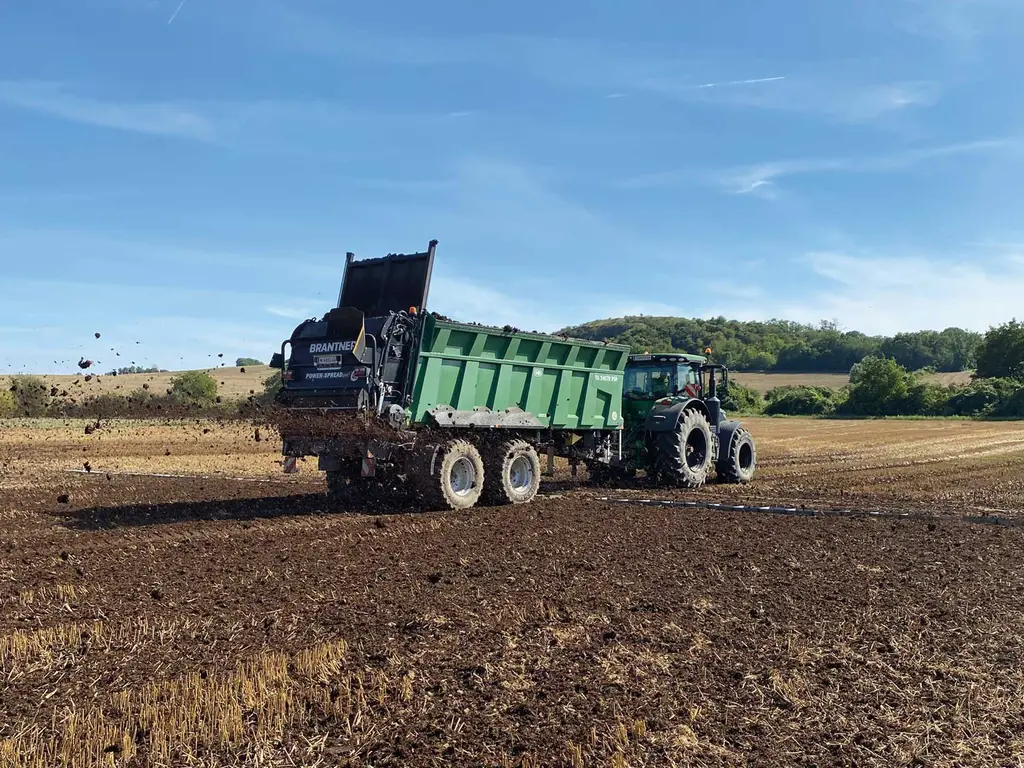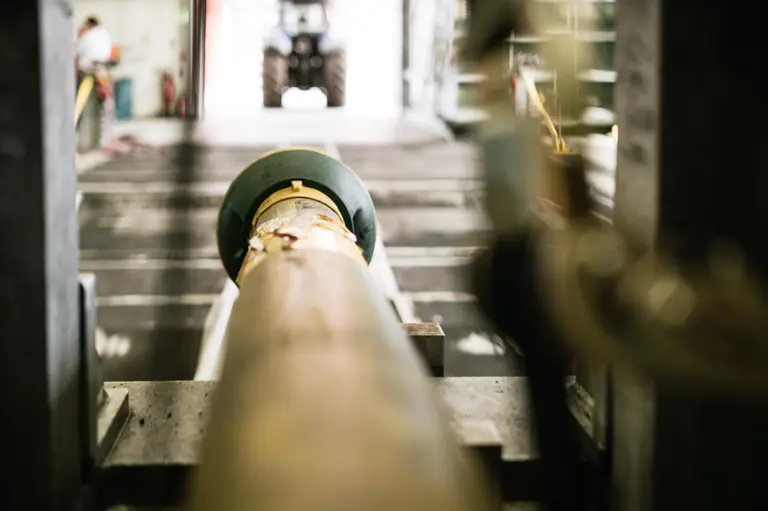One of the central tasks of the non-profit organisation DLG e.V. is to promote the quality of food. The certification body is obliged to comply with these and to carry out the quality tests in accordance with this standard. Participation is voluntary for manufacturers. The DLG tests are objective and independent. The product tests are carried out by experts on the basis of current scientific test criteria and methods. At the centre of these tests is the analysis of the sensory quality of food, which includes appearance, consistency, smell and taste. Other important test criteria include preparation, packaging and labelling tests as well as chemical, microbiological and physical analyses.
For its food tests, the DLG has developed a scientifically recognised and ISO and DIN-certified test methodology that is also used by other institutes, authorities and companies for food quality control. After the test, the manufacturer receives a detailed test report on the results of his products in the test. In addition, foods that fulfil the strict quality requirements of the DLG can be awarded the DLG Gold, Silver and Bronze awards, depending on the test results.
The DLG works together with leading and renowned institutes and organisations from the various food sectors (e.g. in the area of laboratory tests) to carry out the quality tests. This serves to ensure the scientific validity and neutrality of DLG food tests. The scientific partner institutes and organisations carry out the microbiological, chemical and physical analyses of the products on behalf of the DLG and support the sensory tests with their experts.
- AGROLAB Group, LUFA-ITL Kiel
- Eurofins Analytik GmbH, Hamburg, Wirtz - Eggert - Jörissen Weihenstephan Research Centre for Brewing and Food Quality at the Technical University of Munich, Freising-Weihenstephan
- Hochschule Geisenheim University - Wine Analysis and Beverage Research, Geisenheim
- Ostwestfalen-Lippe University of Applied Sciences, in Lemgo
- IGV Institute for Grain Processing, Nuthetal OT Bergholz-Rehbrücke
- Kneißler Laboratory, Burglengenfeld
- Iben Laboratory, Bremerhaven
- Dr Berns Laboratory, Neukirchen-Vluyn
- Hessian State Laboratory, Kassel-Harleshausen
- Agricultural Centre for Cattle Husbandry, Grassland Management, Dairy Farming, Game, Wangen/Allgäu
- Teaching, Research and Technical Centre for Dairy Farming Triesdorf, Weidenbach (Triesdorf) (for sensory workshops)
- LUFA Nord-West, Institute for Food Quality, Oldenburg
- Max Rubner Institute (MRI), Federal Research Institute of Nutrition and Food, Institute for Cereal Safety and Quality, Detmold
- Max Rubner Institute (MRI), Federal Research Institute of Nutrition and Food, Kulmbach
- MLUA Oranienburg e.V., Oranienburg
- MQD Qualitätsprüfungs- und Dienstleistungs-Gesellschaft Mecklenburg-Vorpommern mbH, Güstrow
- MUVA Kempten, Kempten/Allgäu
- Schöller - Wine & Analytics, Bodenheim
- SGS Institut Fresenius, Freiburg
- TZL-MiTec GmbH, Detmold
- Research and Teaching Institute for Brewing (VLB), Berlin
- Central Laboratory Witowski GbR, Alzey
- DiGeFa Detmold
- Biotask AG Esslingen
- LADR, Recklinghausen and Geesthacht sites
- Intertek Food Services GmbH
- Wine laboratory Krauß
(as at: March 2021)
The scientific management of the International DLG Quality Tests for Food and Beverages is carried out by leading experts from the respective product areas. They come from science, food monitoring and the food industry and have product-specific expertise and many years of experience.
Authorized auditors
| Milk and milk-based drinks | Dr. Erwin Kitzelmann, Wangen |
| Cheese and cheese in consumer packages, cream cheese and cream cheese preparations, sheep's and goat's milk products | Dr. Valentin Sauerer, Kempten |
| Long-life milk products and casein | Dr. Fred Braun, Kempten |
| Butter, sour milk products, desserts and cream products | Gregor Driemel, Oranienburg |
| Ice cream | Dr. Helmut Steinkamp, Oldenburg |
| Boiled sausages, cooked sausages and ham, cooked meat products and lard, raw meat products and raw ham | Prof. Dr. Monika Gibis, Stuttgart Prof. Dr. Diana Graubaum, Berlin |
| Fisch & Seafood | Dr. Elke Müller-Hohe, Freiburg |
| Frozen food | Prof. Dr. Ingrid Seuß-Baum, Fulda |
| Ready dishes | Prof. dr. Lüppo Ellerbroek, Berlin |
| Delicatessen products | Dr. Barbara Schalch, Oberschleissheim |
| Self-service fresh meat | Prof. Dr. Matthias Upmann, Lemgo |
| Bread, pastries | Prof. Dr. Thomas Becker, Freising |
| Fine baked goods | Michael Hücking, Niederwiesa |
| Cereal foods and confectionery | Prof. Dr. Jean Titze, Köthen |
| Cooking oils/margarine | Dr. Ludger Brühl, Detmold Christoph Sippel, Hamburg |
| Fruit drinks | Dr. Christof Steingaß, Geisenheim |
| Soft drinks | Dr. Diedrich Harms, Bremen |
| Mineral, spring and table water | Dr. Alfons Ahrens, Berlin |
| Hot drinks | Christoph Sippel, Hamburg |
| Beer | Tim Fuchs, Berlin, Dr. Martin Zarnkow, Weihenstephan, Ms. Ludmila Linke, Berlin, |
| spirits | Tim Fuchs, Berlin, Christian Schubert, Berlin |
| Wine and sparkling wine | Prof. Dr. Rainer Jung, Geisenheim |
Frequently asked questions about the DLG food tests
-
How neutral and scientifically validated are the DLG food tests?
The DLG testing methods are based on current scientific findings on quality assurance in the various food sectors. The product-specific test schemes have been developed by expert committees made up of members from the fields of science and academia and practical operations. The tests are conducted by experts from the fields of science and academia, food surveillance bodies, the food industry and craft trades. All foods are assessed in neutralized state – i.e. without any indication or knowledge of the manufacturer, brand or price. That is why the DLG tests are scientifically up to date, independent and neutral. Their goal of developing the high quality level of foods further is recognized as a public-benefit objective. The test criteria and methods are publicly accessible on the internet.
-
What are the test/quality criteria for issuing a DLG award?
The DLG tests are conducted on the basis of product sectors. The focus is on the sensory analysis of the foods and beverages (appearance, odour, taste and consistency). The testers/assessors draw up an expert opinion for each product. In addition the preparation, packaging and labelling are inspected and tested, and chemical, microbiological and physical tests are conducted. The quality of the end product submitted for testing on a specific effective date is crucial for the award.
-
Who takes part in the DLG tests?
Participation in the DLG tests is open to all food producers and is voluntary. The prerequisite for participation is written confirmation by the food producer that the statutory specifications under food law are observed. Test fees are charged for the DLG tests, depending on the outlay for test preparations (e.g. proper preparation of the products for the sensory tests) and the nature and extent of the laboratory, packaging and labelling examinations.
-
How many foods does DLG test every year?
DLG tests around 30,000 products from different food sectors in scientifically neutral tests ever year. The quota of products that do not win an award fluctuates between 20 and 5 per cent, depending on the product group tested and the possible error sources in the various test sectors.
-
Why does DLG only publish results of products that have passed tests?
The DLG tests recognized as public benefit tests aim to develop the high quality level of foods further. The fact that participation in these tests is voluntary is the reason why only details of award-winning products are published. The producers receive a test report for all products submitted that includes hints on how any faults or deficits can be eliminated.
-
What significance does the sensory testing have for assessing the quality of a food?
Sensory testing of food, the description and assessment of a food or beverage on the basis of human senses, is one of the key pillars for assessing food quality. These tests are regularly used by public authorities for quality monitoring and quality assurance of foods. Sensory testing is a separate scientific methodology and stands on the same level as other scientific analysis methods. Sensory analysis of foods is the focal area of DLG tests.











![[Translate to English:] Prüfer DLG-Testzentrum](/fileadmin/_processed_/1/0/csm_Pruefer-DLG-Testzentrum-Lebensmittel_c3763e6a8e.webp)
